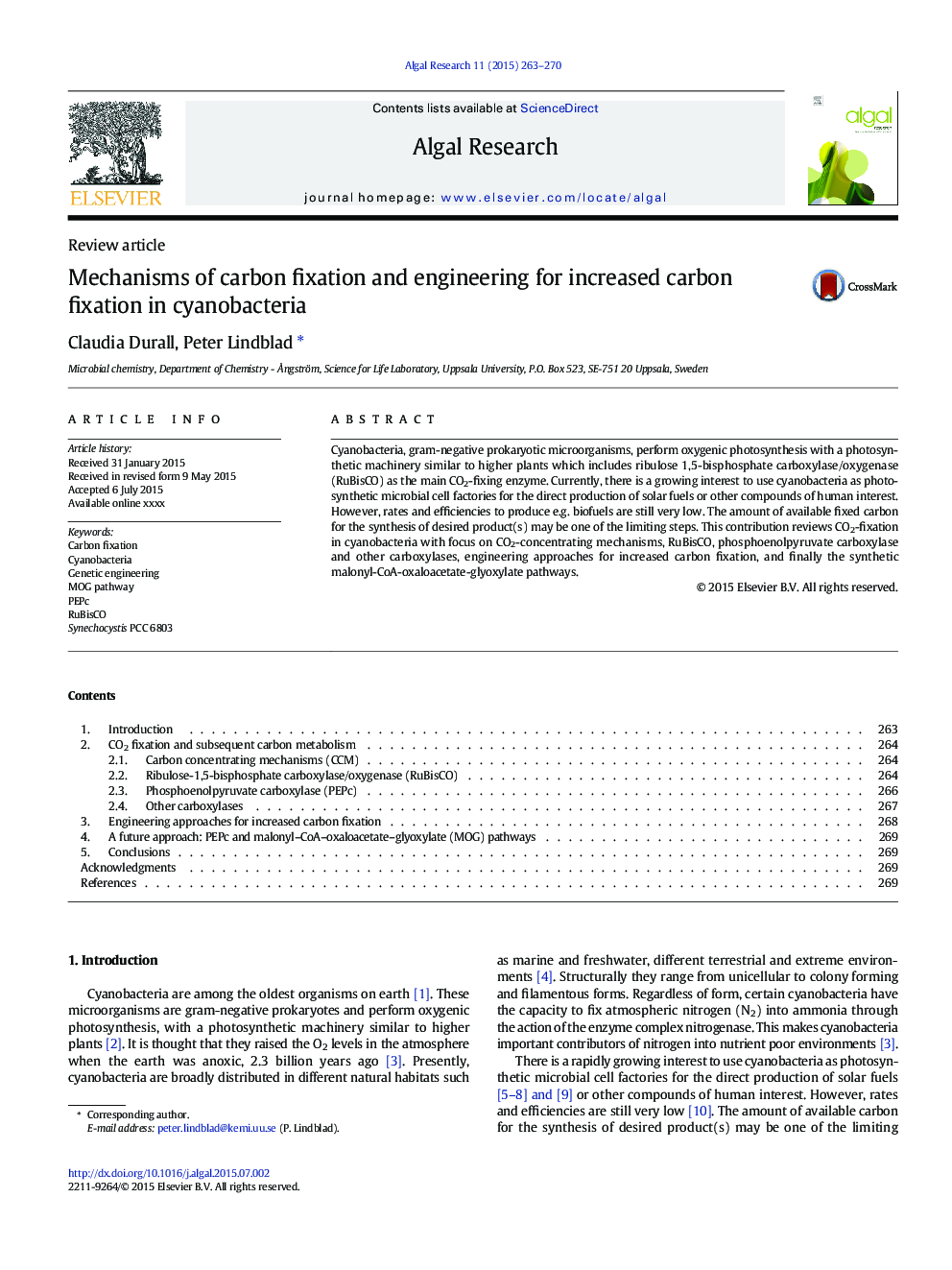| Article ID | Journal | Published Year | Pages | File Type |
|---|---|---|---|---|
| 8087994 | Algal Research | 2015 | 8 Pages |
Abstract
Cyanobacteria, gram-negative prokaryotic microorganisms, perform oxygenic photosynthesis with a photosynthetic machinery similar to higher plants which includes ribulose 1,5-bisphosphate carboxylase/oxygenase (RuBisCO) as the main CO2-fixing enzyme. Currently, there is a growing interest to use cyanobacteria as photosynthetic microbial cell factories for the direct production of solar fuels or other compounds of human interest. However, rates and efficiencies to produce e.g. biofuels are still very low. The amount of available fixed carbon for the synthesis of desired product(s) may be one of the limiting steps. This contribution reviews CO2-fixation in cyanobacteria with focus on CO2-concentrating mechanisms, RuBisCO, phosphoenolpyruvate carboxylase and other carboxylases, engineering approaches for increased carbon fixation, and finally the synthetic malonyl-CoA-oxaloacetate-glyoxylate pathways.
Related Topics
Physical Sciences and Engineering
Energy
Renewable Energy, Sustainability and the Environment
Authors
Claudia Durall, Peter Lindblad,
